HING Vutha
Senior Project Advisor
Mr Hing is a trade economist, holding his PhD in Economics from the University of Adelaide, Australia, and Master’s in International Trade Law and Policy (LL.M) from the University of Barcelona, Spain. He has been actively engaged in economic research and policy debate for nearly 20 years through his research profession at the leading development research in Cambodia. He was a research associate at Cambodia Development Resource Institute (CDRI) between 2004 and 2008 and a research fellow since 2009. Most of his research works were on trade, economic integration, and labour market and his core research abilities are trade policy analysis using quantitative methods and research grant writing. He is currently working at CDRI as senior research fellow. Mr. Hing is also an advisory Board member of the National Council on Science, Technology and Innovation, Ministry of Industry, Science, Technology and Innovation, Cambodia.
Through his PhD research, Mr. Hing has built his strong interest and specialization in global value chains analysis using quantitative research method. His PhD dissertation on ‘the role of human capital in global value chains in East Asia'. He has a number of value chains analysis papers on the pipeline for publication and they are: assessing the determinants of global value chain participation in East and Southeast Asia: cross-country analysis; the impacts of human capital on firm participation in value chains: firm-level analysis in East and Southeast Asia; SMEs participation in global value chains: evidences from Indonesian manufacturing firm analysis; does servicification enhance productivity: evidences from Indonesian manufacturing firms; and innovation, technology and productivity: evidences from Cambodian firms.
Email : vutha.hing@cdri.org.kh
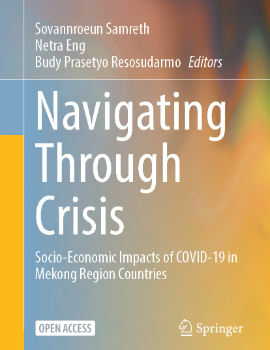
Assessing the Impact of COVID-19 on Cambodia’s Trade, Global Value Chain, and Export Competitiveness
The COVID-19 pandemic has severely disrupted global economic activity, impacting Cambodia’s trade dynamics, weakening its integration into global value chains, and undermining export competitiveness. This chapter assesses the pandemic’s effect on Cambodia’s trade landscape, focusing on shifts in export structure, supply chain disruptions, and chang...

Economic growth pathSince 1998, Cambodia has transitioned from an agrarian-based economy to one driven by industry and services, achieving robust growth of over 7 percent annually from 2000 to 2019. This progress led to Cambodia attaining lower middle-income status in 2015, setting the stage for long-term quality growth with ambitions of achieving...
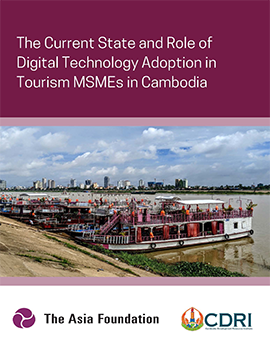
The majority of businesses in Cambodia are micro, small, and medium-sized enterprises (MSMEs), which account for 99.9 percent of all businesses and a sizable portion of employment in the private sector. The adoption of digital technology (DT) among Cambodian MSMEs is still uneven and relatively low, despite the fact that it has become an essenti...
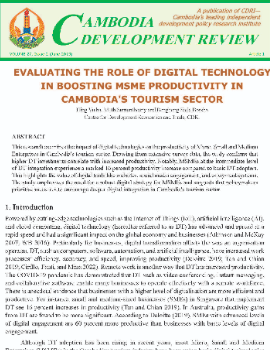
Evaluating the Role of Digital Technology in Boosting MSME Productivity in Cambodia's Tourism Sector
This research examines the impact of digital technologies on the productivity of Micro, Small and Medium Enterprises in Cambodia's tourism sector. Drawing from extensive survey data, the study confirms that higher DT investments correlate with increased productivity. Notably, MSMEs at the intermediate level of DT integration experience a marked 16...
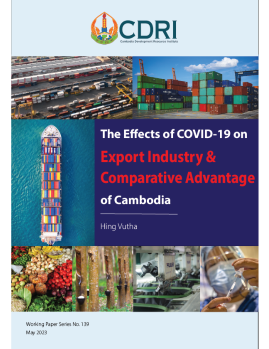
The repercussions of COVID-19 resulted in global disruptions to supply and demand as well as shocks to the global production networks. This paper employs a trade analysis approach to assess the impacts of coronavirus on Cambodia’s export performance. Utilising Revealed Comparative Advantage (RCA) index, changes were analysed using data pre-and post...
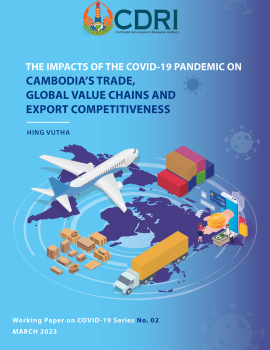
Despite growing research on COVID-19 and its impacts on Cambodia, the extent to which COVID-19 affects Cambodia’s trade, global value chains (GVCs) and export competitiveness has not yet been well established. This study, therefore, aims to fill knowledge gaps and examine the dynamic of Cambodia’s exports, GVCs and competitiveness during the...
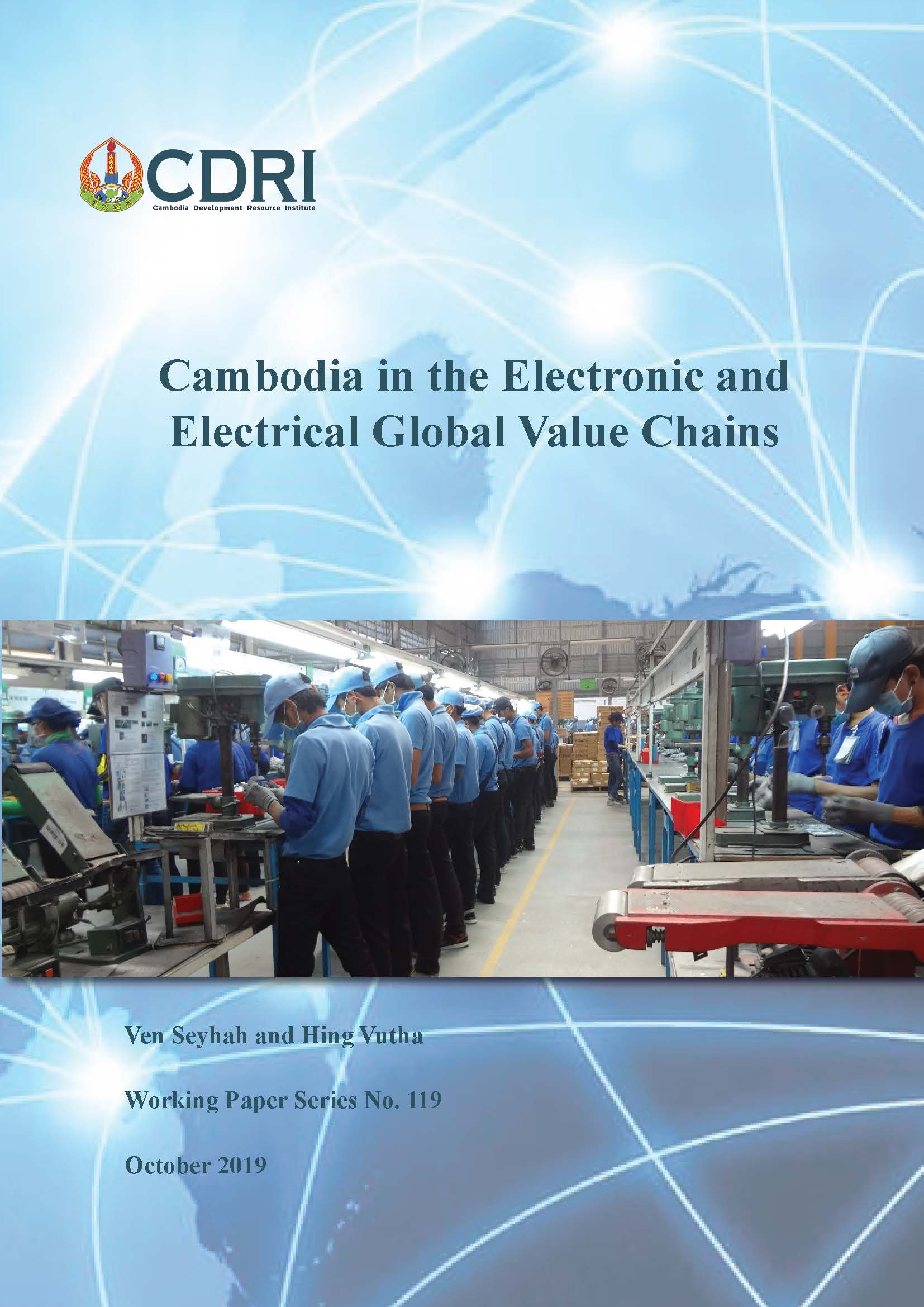
This paper maps Cambodia’s participation in Electronic and Electrical (E&E) value chains using trade statistics. It also conducts SWOT analysis based on both qualitative and quantitative data from a E&E firm survey, from which three major conclusions are drawn. This paper argues that E&E production in Cambodia has expanded rapidly with countries in...
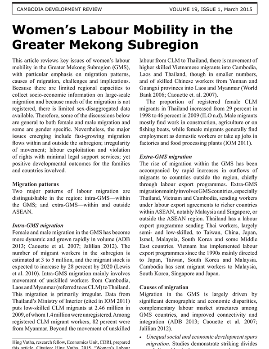
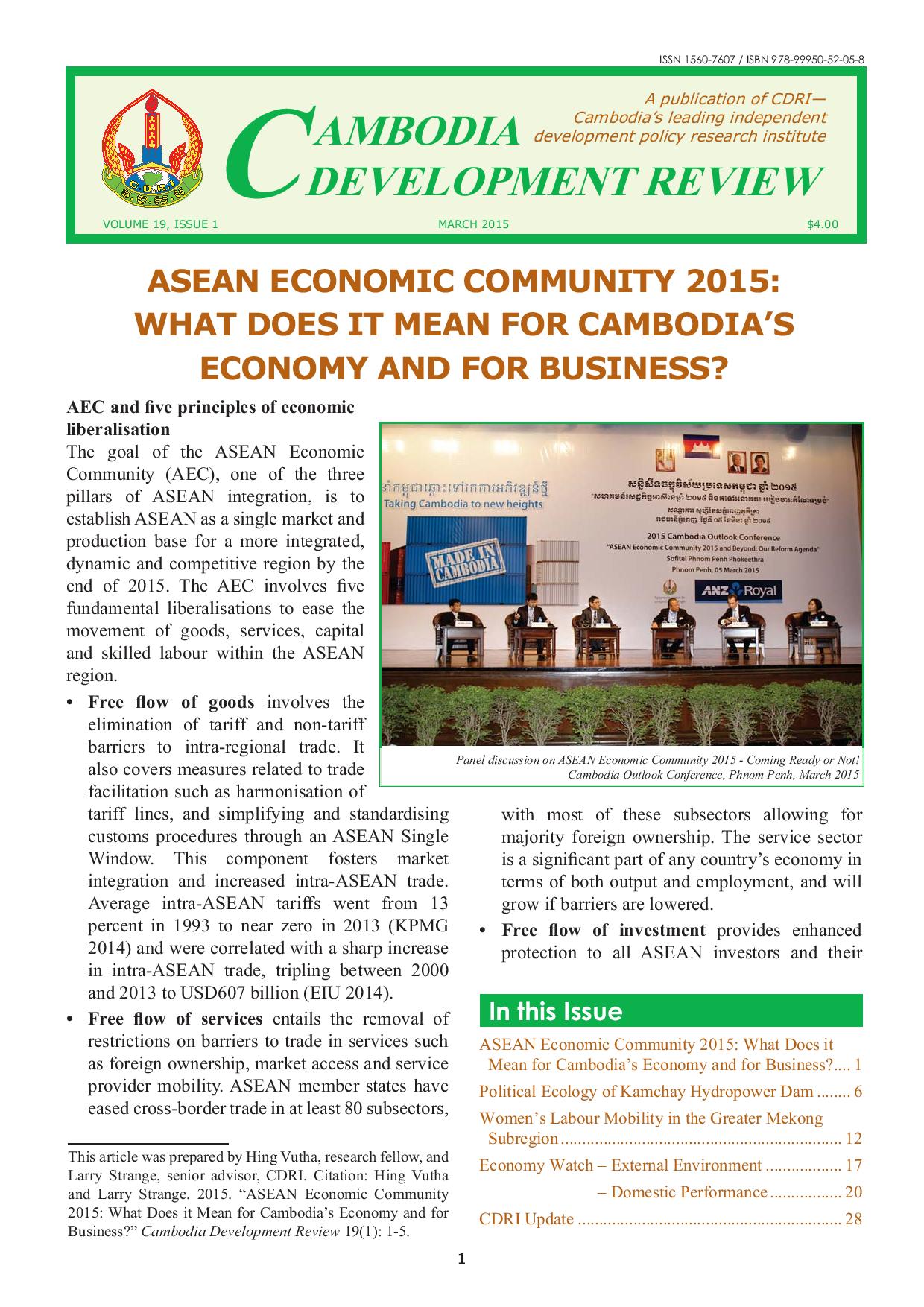
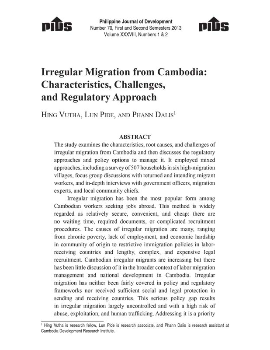
The study examines the characteristics, root causes, and challenges of irregular migration from Cambodia and then discusses the regulatory approaches and policy options to manage it. It employed mixed approaches, including a survey of 507 households in six high-migration villages, focus group discussions with returned and intending migrant workers,...
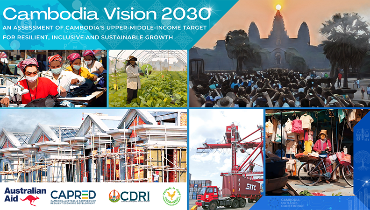
Inspired by the high and sustained economic growth of the past decades that lifted disposable income and pulled millions of people out of poverty, the Cambodian government has set its ambitious target of becoming an upper middle-income country by 2030 and further a high-income country by 2050. This aspiration terms as ‘Cambodia’s Vision 2030’...

Digital technologies have evolved at breakneck speed and spread, changing not only the digital ecosystem but also the way economy, trade and business are functioning. Massive digital transformation and its associated broad benefits for development have prompted most countries to embrace digital technology and incorporate it into their economic deve...
